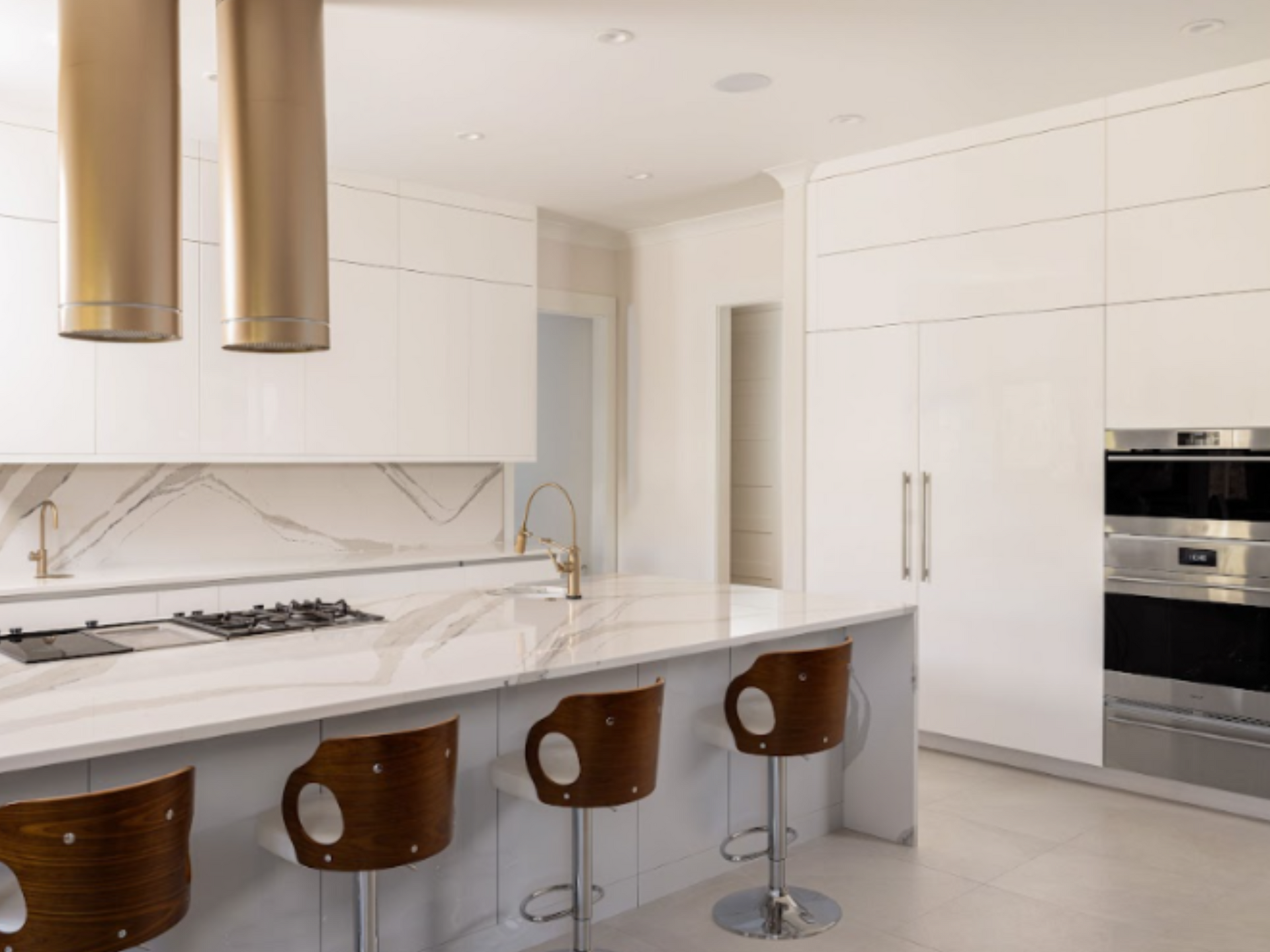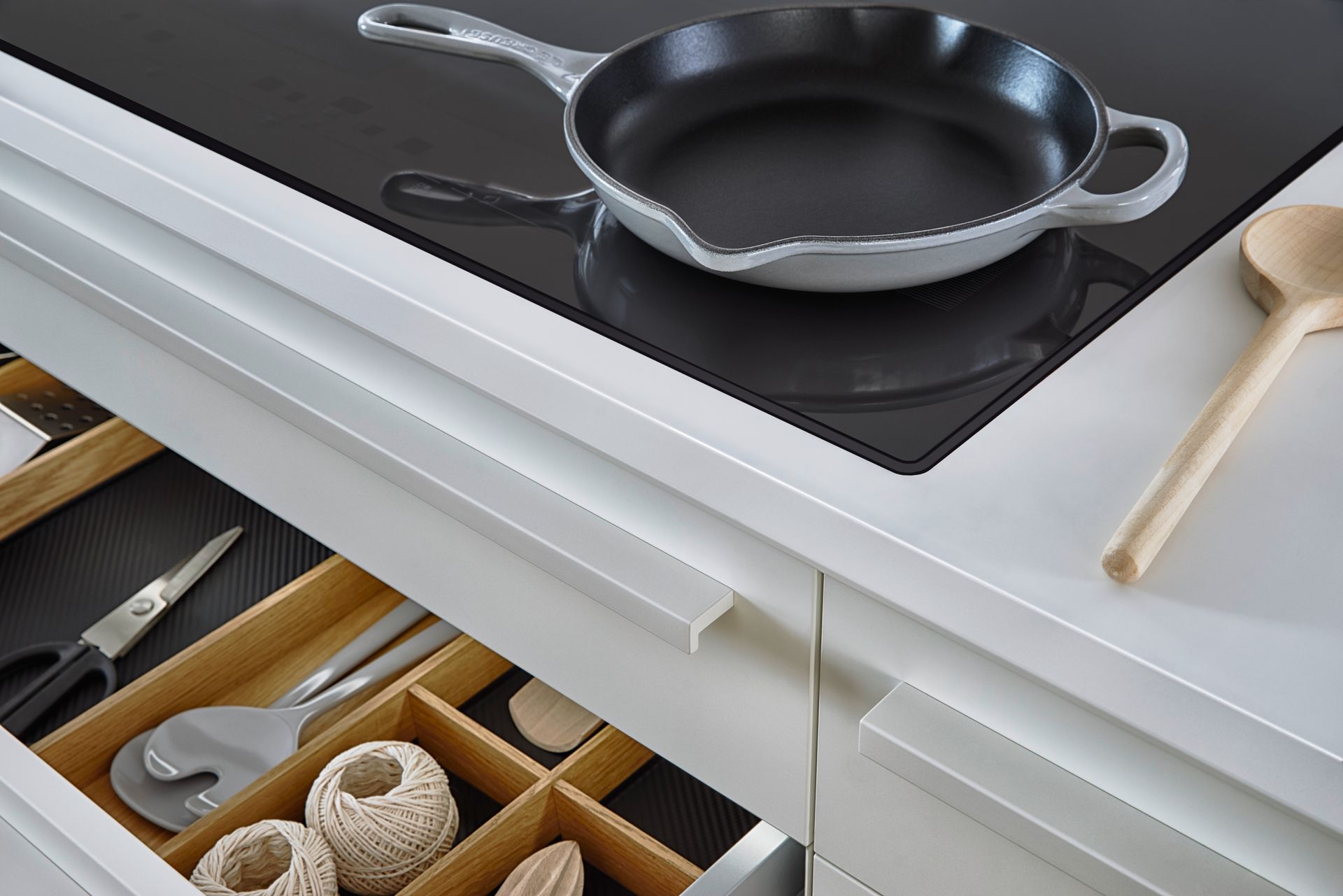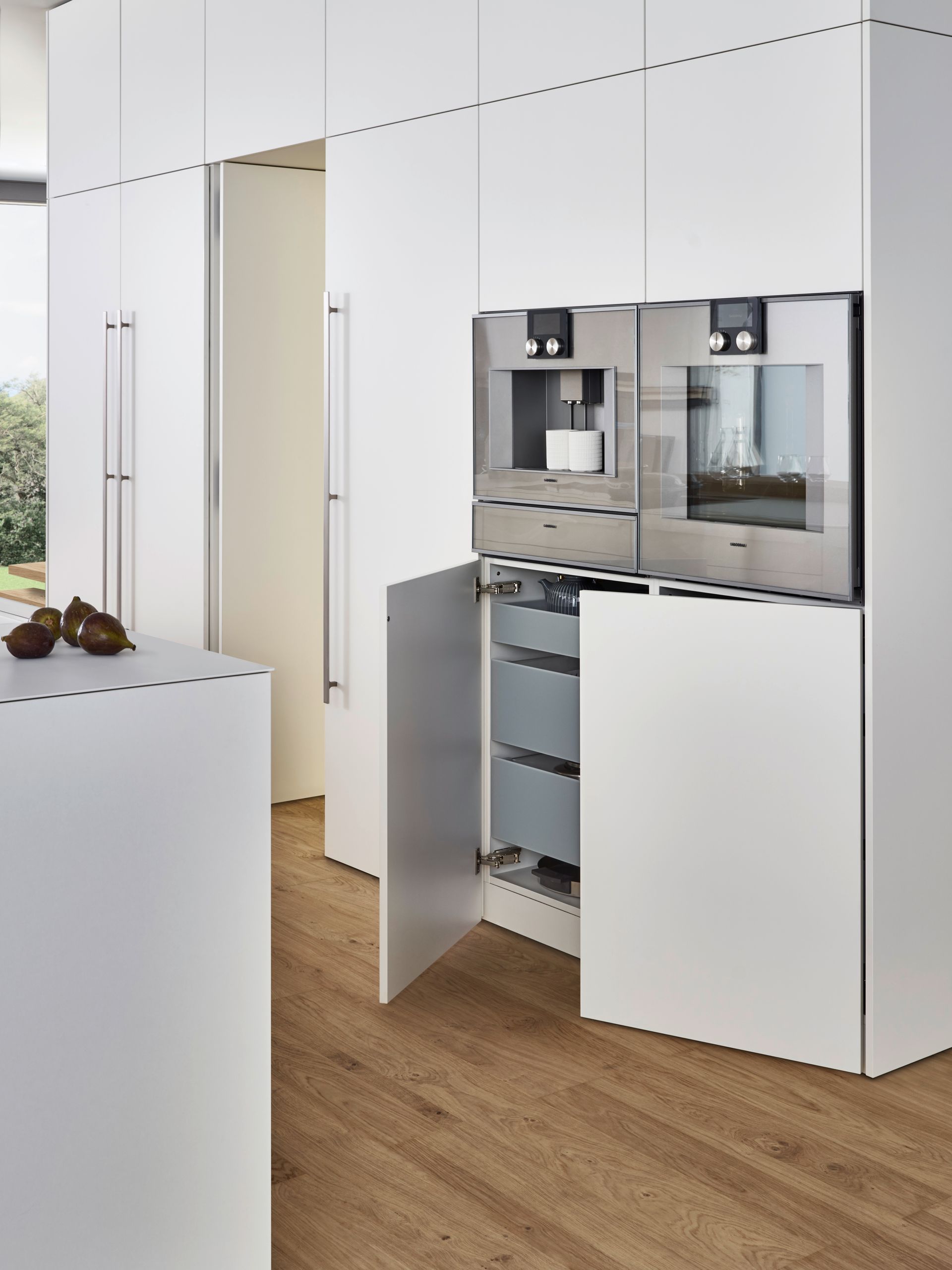The Psychology of Kitchen Design: How Colors and Textures Influence Your Mood
When you step into a kitchen, it's not just the aroma of cooking that affects how you feel; the colors and textures you see around you play a pivotal role too. Understanding the psychological impact of these elements can transform a kitchen from merely functional to truly soul-soothing. At Forest Kitchen Design, we leverage the power of psychology in our kitchen designs to enhance the well-being and comfort of homeowners in Greenville and Spartanburg, SC. Let’s explore how specific colors and textures in kitchen design can influence your mood and overall experience.
The Influence of Color
Color psychology is a powerful interior design tool that impacts the ambiance of a kitchen and how people feel while they use the space.
Warm Colors
Red: Often used to stimulate appetite, red can be a dynamic choice for a kitchen. However, it’s best used in moderation as it can also raise energy levels and sometimes lead to feelings of irritation.
Yellow: This cheerful color can brighten up any space, making it feel warm and welcoming. Yellow is known to evoke feelings of happiness and optimism, but too much can be overwhelming and may distract from relaxation.
Cool Colors
Blue:
Known for its calming effects, blue is an ideal choice for a serene kitchen setting. Lighter blues can make a kitchen feel fresh and clean, whereas darker shades add a touch of sophistication and tranquility.
Green:
With its natural connotations, green promotes harmony and balance. It’s an excellent choice for kitchen spaces, providing a refreshing touch that connects you with nature.
The Role of Textures
Textures also play a crucial role in the psychological impact of your kitchen’s design. They can add depth and interest, influencing both the look and feel of the space.
Smooth and Glossy Surfaces
These surfaces reflect more light, which can make a space feel brighter and more open. The perception of warmth or coldness in a space can be influenced by many factors, including color, lighting, and personal preference. It is not inherent to the texture itself.
Rough and Matte Textures
Adding elements like wood or stone can introduce an organic, grounding feel to your kitchen. These textures are typically associated with warmth and comfort, making them ideal for creating a cozy, inviting kitchen environment.
Combining Colors and Textures for Optimal Effect
At Forest Kitchen Design, we believe the key to a successful kitchen design lies in the balance of colors and textures. For example, a kitchen that combines deep green cabinets with natural wood countertops can offer a calm, earthy environment that enhances concentration and reduces stress. Alternatively, a combination of sunny yellow walls with glossy white cabinets can energize the space, making it ideal for socializing and active families.
Designing with Well-being in Mind
We prioritize designs that not only meet the functional needs of modern life but also promote emotional well-being. By understanding the effects of colors and textures, we create kitchens that aren’t just beautiful but are also psychologically uplifting. This approach has allowed us to transform countless homes in
Greenville, SC, and
Spartanburg, SC, ensuring that each kitchen is a sanctuary of comfort and joy.
The design of your kitchen can dramatically influence your mood and well-being. By carefully selecting colors and textures that resonate with the psychological needs of homeowners, Forest Kitchen Design crafts spaces that enhance daily life. Whether you're renovating an existing kitchen or building a new one from scratch, consider how the psychological effects of your design choices can turn your kitchen into a haven of happiness and relaxation. Ready to redesign your kitchen with well-being in mind? Contact
Forest Kitchen Design today and let us help you create a space that truly feels like home.





